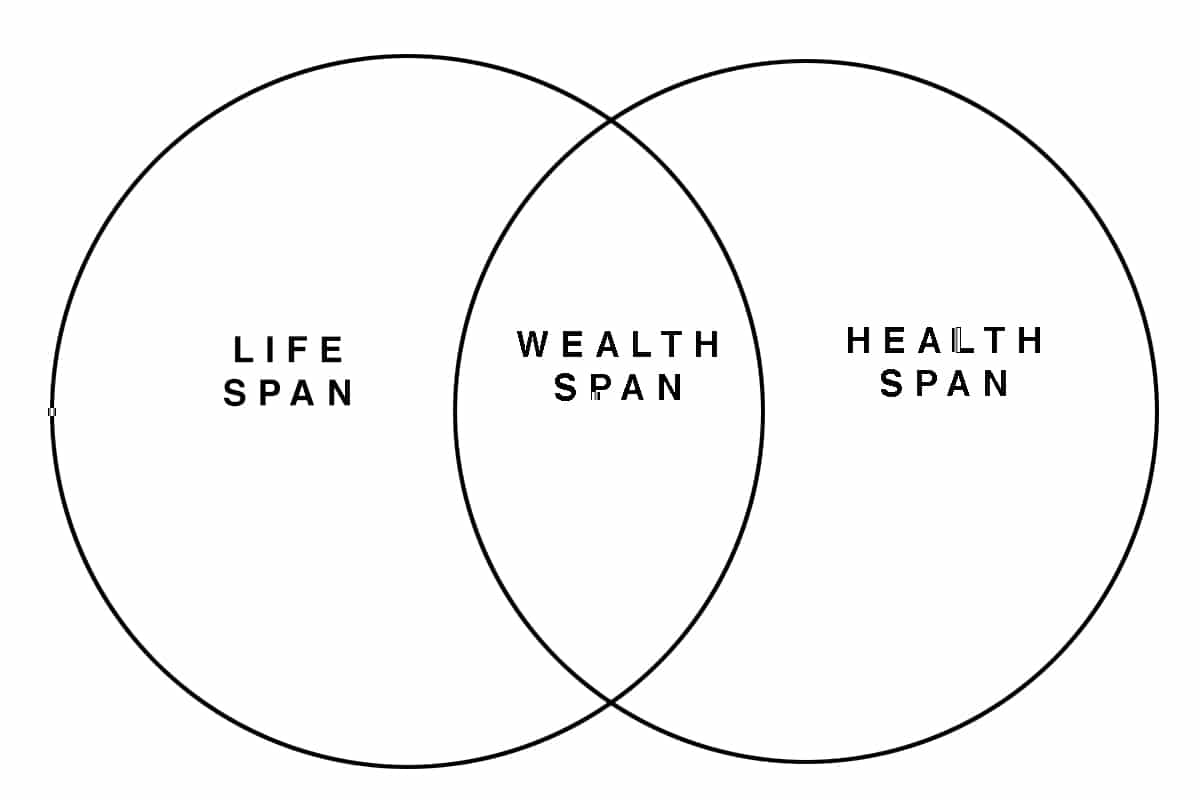In 2020, AGEIST continued its research into the attitudes of our age cohort and learned more about how the effects of our life span and health span will move us forward in this enriching part of our life journey. But, what about our wealth span? In this article, we’ll explore how the financial element of our lives intermixes with our longevity and health. Also, we’ll share how the recent pandemic shaped new attitudes toward our financial outlooks.

The good news is we are living longer and healthier.
Life spans have been expanding at the rate of 2.5 years per decade since 1800 and, according to Dr. Michael Roizen of the Cleveland Clinic, we are about to enter the realm of exponential increases. “Just as we now like to say that 60 is the new 40, by the year 2030 the age 90 will be the new 40.” How long each of us will be living, and how much of that time we will be healthy is something none of us know the answer to, however, in general, we will be living healthier for longer than our parents or grandparents.
In a 2019 AGEIST research study of our 50+ age cohort, 79% said they feel physically healthy and 95% revealed they still have lifestyle goals they want to achieve. In the words of one survey participant, “I am capable of learning new things. I am still improving!”
How we coped with the bad news in 2020-2021.
We found that the unprecedented uncertainty that major world events like the COVID-19 outbreak can have large and unpredictable effects on the global economy and on financial markets. Using history as a guide, if there is one thing we can count on, it is that these unpredicted events will continue to occur and with wide ranging effects. Since we will be living quite a bit longer, we will most likely witness more of these disruptive events.
The 2020 AGEIST research collaboration with Jackson explored how the pandemic may have affected the outlook those aged 50 to 70 had on their future. We discovered that attitudes toward life span and health span were surprisingly unaffected by this global health event, but our wealth span has us worried. The increased level of worry is new and did not exist in the AGEIST 2019 research. When asked about their financial futures, 34% said they were more anxious lately. In the words of one survey participant, “I feel less certain that my investments will last.”
What we are doing differently.
We also learned from the 2020 study with Jackson, that only 31% of us are now making financial decisions alone. While we remain confident in many areas of our lives, financial planning and income management for the years ahead may not be one of them. A survey participant summed up this feeling well, “I am looking for a financial advisor to get me through this.” We are no longer looking to plan for our financial needs in retirement on our own.
As we enter an age of accelerated longevity – the fastest-growing age cohort today are those over 80. An increased life span and enriched healthspan may be coming quicker than some had previously predicted. The question to now ask ourselves (and a financial professional) is, will our wealth span be sufficient?



